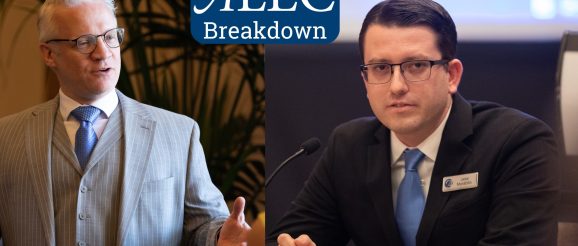Grappling With AI Regulation & Innovation: Jake Morabito on ALEC Breakdown – American Legislative Exchange Council

Grappling With AI Regulation & Innovation: Jake Morabito on ALEC Breakdown The states that are putting in the work, doing the research, convening stakeholders from across the aisle and across disciplines; they’re going to be the ones that are most informed. Jake Morabito, ALEC Communications & Technology Task Force Director, sits down with Lars Dalseide discussing the challenges of regulating AI while balancing innovation and risk on this ALEC Breakdown. A great way to kind of start these conversations to take a look at how much the technology continues to change. Ever since chat GPT first debuted to the public back in November 2022. We just earlier this year heard news from open AI the developers of GPT that they’re now working on video generation. So now we’re talking about image generation tools, things that you use to have a Hollywood director or have some sort of a high production to produce content. Now I can do that in seconds. This is changing the landscape, and that initial hype has now come into concrete question and action about what policymakers are doing and what is the right approach in order to protect innovation while making sure that Americans are protected from any adverse effects. … I think several states have taken some proactive steps like in Wisconsin, Texas, and several other states, I believe they’ve at the government level set up AI task forces as select committees, to really think strategically and methodically about what AI means for our state and the citizens of our state, and especially studying how the government should be using this technology. I think it’s a prime opportunity to transform government and we can do more with less resources, conserve taxpayer dollars in the process. I think rushing into some of these sweeping legislative proposals, I know it’s sometimes it can be tempting to do something right this second. Typically, you don’t get good results from that. The states that are putting in the work, doing the research, convening stakeholders from across the aisle and across disciplines, they’re going to be the ones that are most informed.
